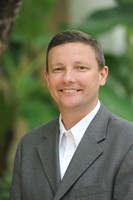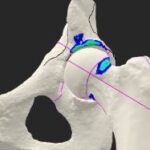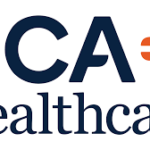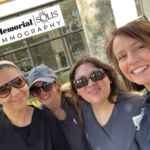Multiple generations of the Chen family have graduated from the University of Miami and the Leonard M. Miller School of Medicine. And like the Miller School, the Chens have had a longstanding passion for reducing health disparities and improving the lives of residents in the most medically underserved communities.
The Chen Family Foundation is looking to expand that shared mission even further by donating $3 million to advance research through the Chen Family Endowed Chair to Advance Primary Care and Health Equity Research.
“The foresight, leadership, and dedication of Dr. Chris Chen and his family will propel the University forward in our pursuit of health equity,” said University of Miami President Julio Frenk. “We are incredibly appreciative of their generosity and partnership.”

(l-r) Dr. Gordon Chen, Chief Medical Officer, ChenMed; Dr. Jessica Chen, Chief Clinical Officer, ChenMed; Stephanie Chen, Chief Legal and Culture Officer; Dr. Christopher Chen, CEO, ChenMed; Mary Chen, Co-founder and Chief Market Development Officer, ChenMed; Dr. James Chen, ChenMed Founder
The Chen Family Endowed Chair to Advance Primary Care and Health Equity Research will enable the Miller School’s Department of Medicine to recruit a leader with extensive experience in primary and population health care that will allow UM to become the leader in primary care and medicine among academic institutions. Once aboard, that expert will be tasked with researching and improving the way primary care, and health equity, is delivered throughout South Florida.
“We are lucky to have Dr. Chris Chen’s expertise as a partner and are excited about the establishment of this new chair, which will enhance the way we look at primary care and how we can make it accessible to all members of our community developing new models of compassionate delivery,” said Roy E. Weiss, M.D., Ph.D., chair of the Department of Medicine, the Rabbi Morris I. Esformes Endowed Chair in Medicine and Endocrinology, the Kathleen and Stanley Glaser Distinguished Chair, and chief medical officer for ambulatory services for UHealth. “We are proud to be partnering on such an important health initiative that will ultimately benefit residents throughout our community and beyond.”
In a way, the Miller School is like an extension of the Chen family. In addition to his father, Jen-ling Chen, Ph.D., M.D. ’81, and younger brother, Gordon Chen M.D. ’05, Chris Chen, M.D. ’00, has other relatives who are Miller School alumni: Uncle Peter Chang M.D. ’79; Uncle Kenneth Lo M.D. ’82; sister-in-law (Gordon’s wife) Jessica Lane Chen M.D. ’06; Dr. Chris Chen’s roommate; and Dr. Gordon Chen’s brother-in-law, Jason Lane, M.D. ’01.
The Chen family’s mission to reduce health disparities is based on their Christian faith to serve and help others. That mission was intensified in 2003 after their struggle with the health care system. Chen’s father, Jen-ling, was diagnosed with cancer and given only two months to live. He and his family say they experienced what it was like to be on the receiving end of fragmented and unsympathetic health care at a cancer center in another state where the multiple specialists involved in his care did not collaborate, appointments had to be booked weeks in advance, and compassion seemed lacking.
Miraculously, Chen’s father recovered and soon delved into a new mission; developing a method of delivering medical services that provided a superior level of care and positively impacted patients’ lives, particularly in underserved communities.
“When we began building out ChenMed, we were very much aware of what the delivery system felt like from the other side of the glass,” said Chris Chen, the C.E.O. of Chen Med. “That drives many of our decisions: What would we want if we were in the patient’s shoes? Our goal was to deliver superior patient outcomes and a positive patient experience to a typically underserved population during the most vulnerable time of their lives.”
The result is ChenMed, a concierge-style health care practice that strives to be America’s leading primary care provider, transforming the care of the neediest populations. It operates more than 100 primary care medical practices in 15 states, and with its emphasis on preventative care, the organization’s hospital admission rate is 30 to 50 percent lower than the national average.
“This is why we are investing in the University of Miami,” Dr. Chen said. “The unique UHealth, Miller School, and Jackson partnership that cares for one of the most racially and socioeconomically diverse populations in the U.S. is the perfect place to build the beachhead for this movement in academia.”
The Chen endowment aligns with the Miller School’s commitment to health equity and medical education. As home to one of the most diverse populations in the nation, the medical school is committed to treating patients respectfully across distinct cultures and ethnicities and furthering its mission to improve health equity.
Innovative community-based programs, many run by medical student-volunteers, provide thousands of South Florida residents with access to comprehensive care and services. And the Miller School’s innovative NextGenMD curriculum trains today’s physicians to go beyond traditional medical care and become specialists in preventive care, precision medicine, and personalized health care that focuses on understanding of the social determinants of health.
“We have prioritized creating an optimal learning environment for students of all backgrounds because we believe diversity in the classroom produces doctors who are better equipped to serve the patients who need them,” said Henri R. Ford, M.D., M.H.A., dean and chief academic officer of the Miller School. “Health equity is one of the pillars of education that we teach at the Miller School and establishing this chair will help further that goal.”
Dr. Chen credits that community focus with preparing him for his career. As a medical student, he and his classmates gained valuable training serving a much more heterogeneous demographic than they would encounter at other schools.
“Doctors who come out of programs with a strong urban presence, such as UM, do a great job of making people better,” Dr. Chen said. “They have discovered that 85 percent of health care is about what lies outside the clinic — a person’s genetic code, where they live, and their lifestyles and behaviors. We saw that daily at UM when dealing with patient challenges that have nothing to do with pills, procedures, specialists, and tests.”




























